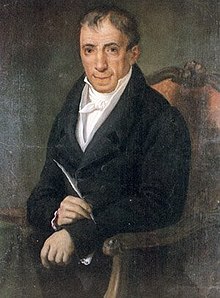User:Aearthrise/Greek/Byzantine Greek Course

Welcome to the Byzantine Language Course! I, Andrew Earthrise, have created this course to teach you how to read and understand the Byzantine language.
This Greek will help improve your English. Byzantine was spoken between Christians & Muslims of Greek & Turkish lands. It is called Romaïca, Roman.
Adamantios Korais removed all foreign words from Byzantine in the 1700's creating Katharevousa, "purified language". Katharevousa is the official language of the Greek Orthodox Church.

In learning Byzantine Greek, you will understand Modern Standard Greek, and benefit from Ancient Greek grammar.
Byzantine Pronunciation[edit]
The Greek in this course is Romanized; the ease of reading Latin letters aids literacy.
Oi, Y, and U are pronounced ü, like in "cute"
Ch is pronounced like "kh", as in Scottish "loch".
Ei is pronounced like iota, ee.
Ai is pronounced the same as epsilon & eta, "ay"
Th is pronounced th, like in "thumb"*
D is pronounced th, like in "those"*
C is always pronounced k, like "cat"
Ou is pronounced oo, like "food"
Au is pronounced av, like "avarice"
Eu is pronounced ev, like "every"
G is always a hard g, like "go"
Ph is pronounced f, like "feeling"
B is pronounced v, like "very"
Ui is pronounced wee
There are no distinctions between long & short vowels.
The * means different sounds!
Chapter 1[edit]

Hello! Who are you?
I am Mister Andrew.
And who are you?
I am Miss Maria.
Hello Mister Andrew!
Hello Miss Maria!
How are you?
I am fantastic.
Hello Miss Maria!
Hello Mister Andrew!
How are you?
I am ecstatic (very happy).
Chapter 2[edit]

Hello to you!
Hello friend!
What is your name?
To οnoma mou einai Despoina Theodora .
My name is Miss Theodora.
What is your name, friend?
To οnoma mou einai Despotes Marcos .
My name is Mister Marcus.
Ego chairomai poly, Despota Marce .
I am very pleased, Mister Marcus.
Ego chairomai poly, Despoina Theodora .
I am very pleased, Miss Theodora.
Ego se eucharisto, phile.
I thank you, friend!
Ego se eucharisto, Despoina Theodora.
I thank you, Miss Theodora!
Goodbye to you, friend!
Goodbye Mister!
Chapter 3[edit]

The Byzantine provinces:
En to charte, sy blepeis Romen kai ta themata tes Romes.
In the map, you see Byzantium and the provinces of Byzantium.
Rome echei polla kai megala themata.
Byzantium has many and large provinces.
Metaxy ta diasema Romaïca themata einai he Aigyptos, he Thrace, he Hispania, he Achaia, he Macedonia.
Among the famous Byzantine provinces is Egypt, Thrace, Spain, Achaea, Macedonia.
He glossa ton Romaïcon thematon einai he Romaïce glossa.
The language of the Byzantine provinces is the Byzantine language.
He Thrace einai micro thema; He Hispania kai he Aigyptos einai megala themata.
Thrace is a small province; Spain and Egypt are large provinces.
Achaia den einai nesion, einai chersonesos.
Achaea is not an island, it's a peninsula.
Einai he Hispania chersonesos?
Is Spain a peninsula?
To schema tes Italias einai to schema sandaliou.
The shape of Italy is the shape of a sandal.
En pollois themasin einai dase.
In many provinces there are forests.
Ta dase einai megala kai scoteina.
The forests are large and dark.
En tois dasesin einai thaumatica theria.
In the forests there are wondrous beasts.
En tois themasin einai hydragogeia.
In the provinces there are aqueducts.
Ta hydrogogeia pherousi neron eis tas poleis.
The aqueducts bring water to the cities.
Hodoi pherousi dia ton thematon.
Roads lead through the provinces.
Hoi hodoi ton thematon einai plateis kai macroi.
The roads of the provinces are flat and wide.